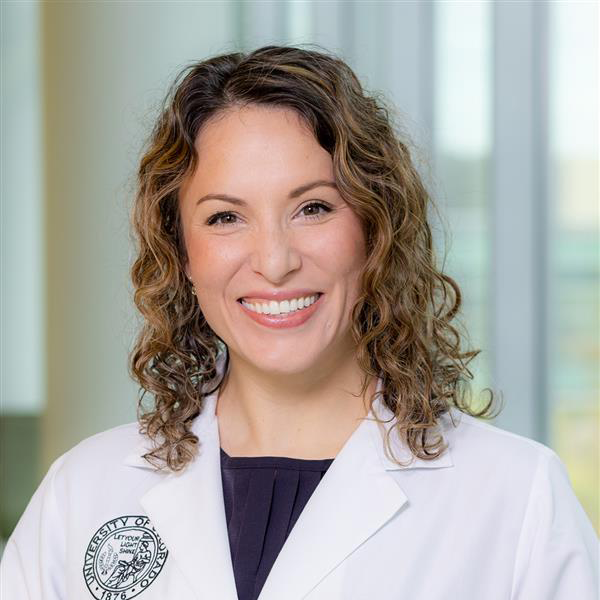The Earth’s climate, our health, and how healthcare providers offer care are intertwined.
“Climate change is one of those things that’s going to increasingly impact our patients and our ability to provide high-quality care,” Assistant Professor of Emergency Medicine at the University of Colorado School of Medicine at Anschutz Medical Campus and Colorado School of Public Health Caitlin Rublee, MD, MPH, says.
She gave a presentation called Climate & Health Overview: Where are we now and where do we hope to go? as part of the CU Anschutz Alumni Virtual Summer Series.
“Since the pre-industrial era, there has been significant warming, and right now, we’re seeing and feeling that here in Colorado,” she says. “As the years go on, we know carbon emissions are contributing to ongoing planetary warming, and what will that impact be on people and healthcare delivery?”
Impacts of Poor Air Quality and Heat
Rublee focused on two climate-related health factors: poor air quality and heat.
“Here in Denver, we have poor ozone and particulate matter in the air,” she says. “As urbanization continues around the world and people move towards cities, this poor air quality certainly has an impact on their health.”
Indicators of Climate Change |
|
Rublee explained how there are unequal burdens and vulnerabilities regarding air quality. People are exposed differently, can or cannot adapt, or could be more susceptible to poor air quality.
“Your patients, or people like you and I, can be exposed and we may not get sick,” she says. “Or, there are various levels of adapting to poor air quality. Can an individual leave their circumstance? Do they have masks or filtration devices?”
Another impact of climate change is higher temperatures and heat. Warmer temperatures mean more insects carrying diseases (like malaria) can spread to more parts of the world, exposing more people to the disease.
Heat also affects medications like Insulin, vaccines, or blood products because they require refrigeration or cold storage. Heat or extreme weather events could knock out energy sources, limiting storage and reducing the supply chain. The heat can also impact a medication’s effectiveness and increase a person’s risk of getting sick from heat exposure.
“Some medications for depression or high blood pressure adjust the thermal regulation of patients, and when they’re outside, they’re at a much higher risk of getting heat exhaustion or getting sick,” she says.
Extreme heat is called a “silent killer” because people don’t know heat can be deadly. The World Health Organization estimates that between 1998-2017, there were 166,000 deaths from heat, but the number is likely much higher.
“Thinking about how we act today has an impact on various scenarios,” she says. “With lower emissions, we lower our greenhouse gases across various sectors, and it could lead to much fewer deaths. How we act now can make a real difference for patients.”
The Healthcare Industry & Climate Change
Heat can have a direct or indirect impact on someone’s health, including things like an accelerated death from diseases like heart failure or increased hospitalization. The heat can also impact health services because more patients needing treatment leads to high demand. Hospitals are using more electricity to keep cool, which puts a strain on the energy supply.
“Think of emergency medical services,” she says. “There’s ground and air transport and medics working in Colorado. They’re loading and unloading patients into ambulances all summer long. They’re also out in the heat for a very long time.”
Rublee says healthcare workers are a critical exposure group when it comes to climate change. Healthcare workers may not be able to get to work during extreme weather events (floods, wildfires). Workers could also be exposed to diseases or injuries when responding to disasters or treating patients.
The healthcare industry plays a role in climate change because of carbon emissions, with almost 9% of greenhouse gas emissions in the US coming from the healthcare industry.
“In providing care with all of the energy impacts – like waste and transportation – we are negatively impacting the planet,” she says. “So how can we look within our sphere of influence to reduce these emissions while also reducing health burdens that our patients are suffering from?”
Giving Patients the Best Care
Eight billion people live on Earth and not every continent is created equal. Some areas are more exposed to water; others are landlocked. Some places have access to electricity, others do not. How does this impact healthcare equity?
The World Health Organization defines health equity as the absence of unfair and avoidable or remediable differences in health among population groups divided socially, economically, demographically, or geographically.
“When we think about resources what are we going to do to prepare for the increased movement of people across the world?” she says. “I know many patients I treat here in Denver come from all over the world, so how do I think about those groups, and how do you best support people seeking care?”
2024 CU Anschutz Alumni Summer Virtual Series: Climate Change HealthcareExperts in Climate Health Care will discuss topics surrounding how our environment intersects with health and contributes to health disparities. Pharmacy and Nursing Continuing Professional Development Credit Hours are available.
|
Rublee says people with certain medical conditions are disproportionately impacted by climate change for a variety of factors, including their mobility. Disaster plans for extreme weather events may not be tailored to meet a patient’s needs. They may not be able to get to a pharmacy or access medication. And, patients are living longer.
“We’re practicing medicine and it’s a good thing, but as patients age, how do we support them in their homes or communities despite warmer temperatures or extreme weather events and the other disruptions in healthcare?”
One way to make healthcare more equitable is by creating policies and programs to help. Rublee says it’s important for healthcare experts to use their experience and expertise to create policies that protect patients and healthcare workers living in places most vulnerable to climate change.
“Something we should be looking into is what’s called redlining,” Rublee says. “It was a former US policy that dictated housing regulations. It’s outlawed now, but many people in formerly redlined areas are living in much hotter environments with less green space, and they tend to be people living in lower-wealth communities.”
Rublee says the healthcare industry must create systems that promote health and well-being. That could be something like looking at ways to improve how a patient gets to the hospital via ambulance or having the ability to rapidly diagnose heatstroke.
“It takes energy, infrastructure, technology, supplies, water, and most importantly a trained healthcare workforce to provide high-quality care,” she says. “Without any of those pieces, how do you functionally run an emergency department in Colorado?”
WHO has guidance on preparing for climate disasters and adjusting to the Earth’s changing climate. President Joe Biden signed the Inflation Reduction Act into law, which has several policies devoted to green energy and reducing emissions. And other leaders around the world meet for climate change conferences, discussing policies to foster change.
“We can think of how we prepare communities for action through leadership and governance and an informed healthcare workforce,” Rublee says. “There are eight billion people on the planet, and there are so many solutions available if these groups had a little bit of support and empowerment for implementation of their ideas.”


